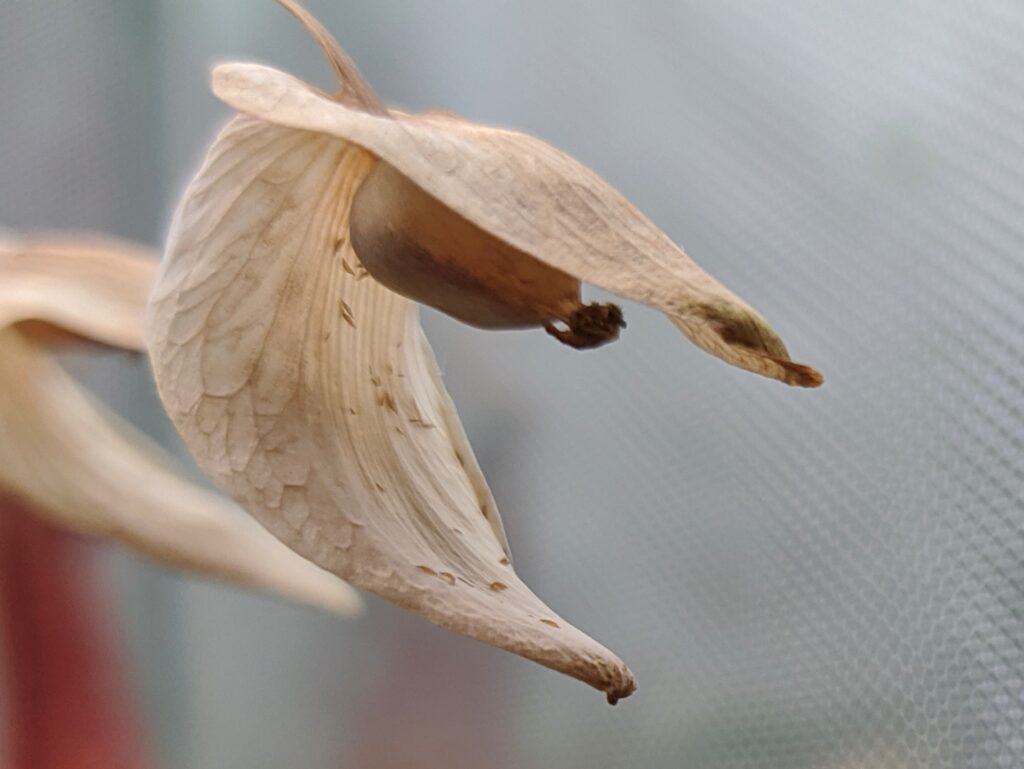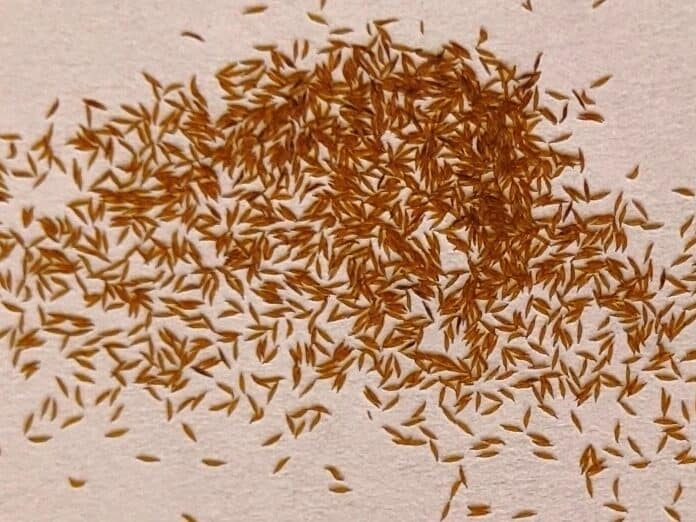How to pollinate Utricularia (bladderwort)
Bladderworts are carnivorous plants that bloom readily, with their colorful flowers often taking passionate growers‘ breath away. This eagerness to bloom invites us to try pollinating their flowers to obtain seeds—whether to expand one’s own collection, share with other growers, or preserve seeds from short-lived plants. At first glance, it’s not obvious how to approach pollinating bladderwort flowers, which is why I wrote this guide how to pollinate Utricularia.
Some bladderwort species, such as Utricularia subulata, are self-pollinating. With these plants, you don’t need to worry about pollination—simply monitor the maturation of their seed capsules. Less common species, particularly the popular orchid-like bladderworts, aren’t as cooperative and require assistance with pollination.
In the photo below, you can see flowers of orchid-like bladderworts: Utricularia alpina (white flower) and its sibling Utricularia alpina x campbelliana (pink flower).
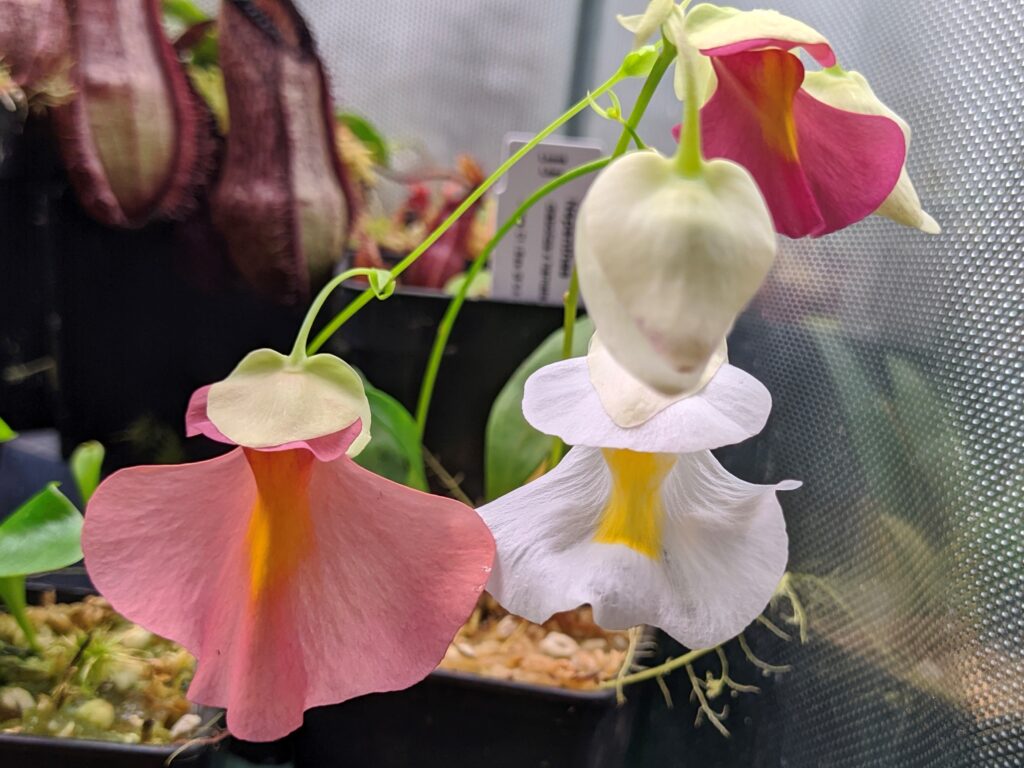
The stigma and anthers with pollen are cleverly hidden within the flower’s interior. To access them, the flower must be forcefully opened. Carefully pull the upper and lower parts apart. It’s important to open the flower gently to avoid damaging it.
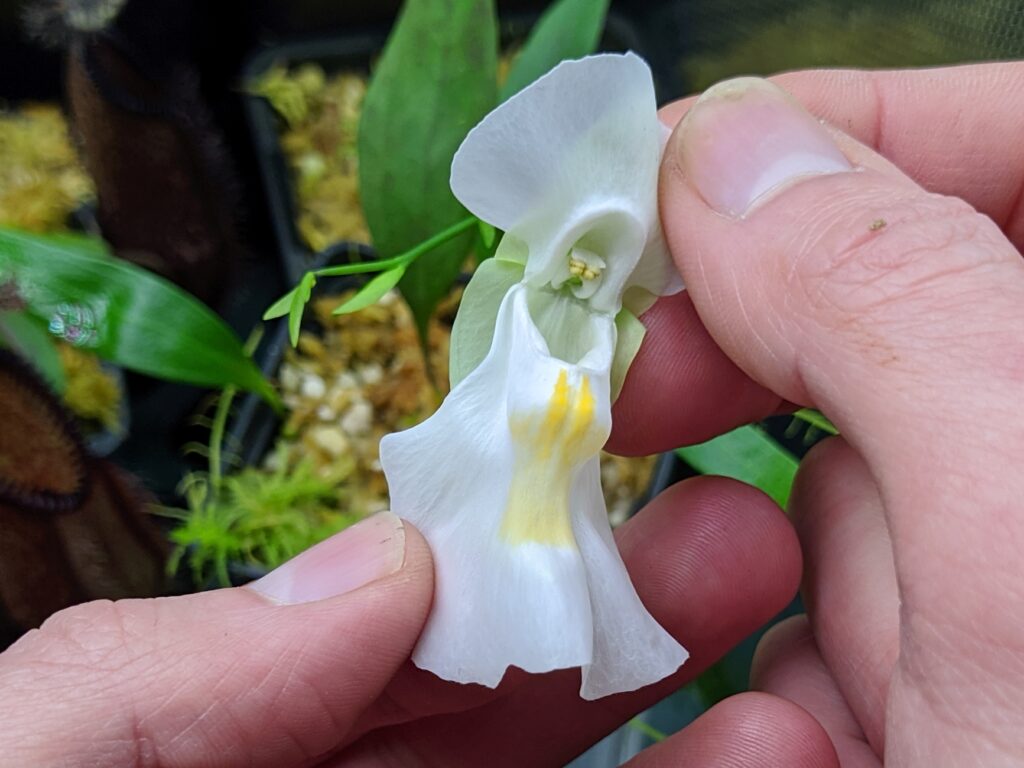
With a closer look, you can see the hidden anthers inside the flower.

Pollen can be collected using a brush or any other tool you prefer for pollen gathering. Personally, I favor a toothpick, where I darken the tip to make the collected pollen visible.
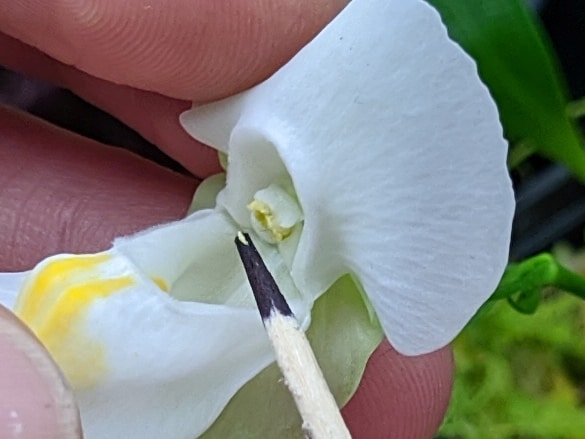
Next, we need to transfer the pollen to the stigma. Rub the pollen onto the „roof,“ which is located right above the anthers. Not all species accept pollen within a single flower, so it is advisable to transfer the pollen to another flower (often within the same plant).
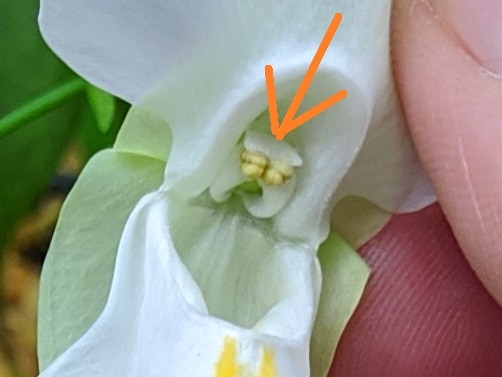
If we’ve successfully completed the process, the flower will soon fall off, and we can wait for the seeds to mature.
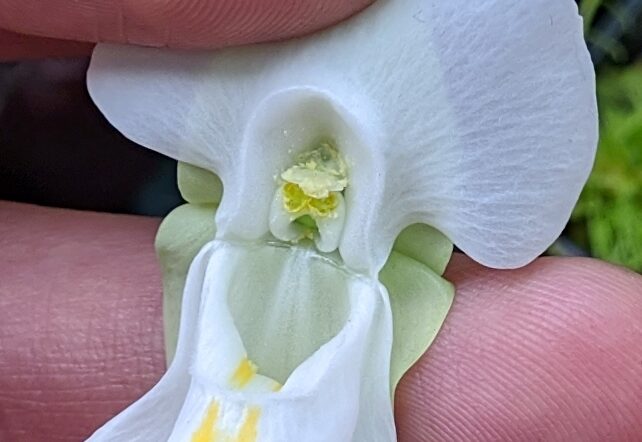
In the photo below, you can see a matured seed capsule, from which the seeds are beginning to scatter.
